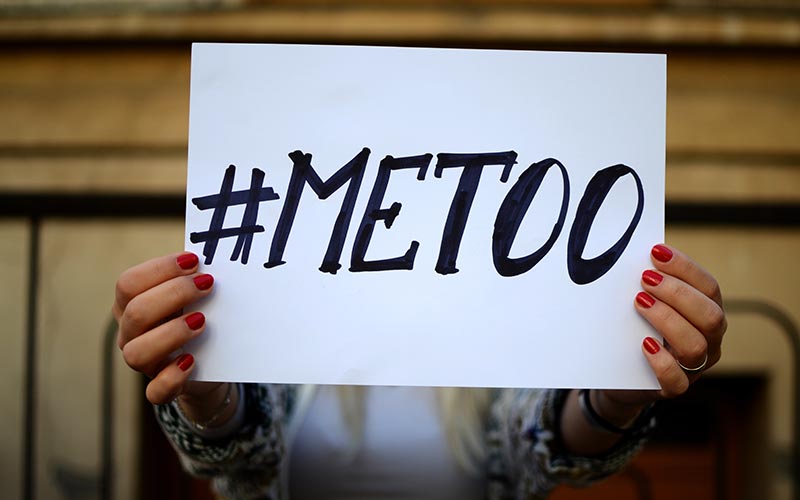Time2Track Blog
Real-Life Resources for Students & Early Career Professionals

Improving Clinical Supervision Through Collaboration
The core purposes of clinical supervision are to protect the welfare of clients by ensuring they are receiving ethical, quality care and to promote the growth of pre-licensed clinicians [1].
A couple of main areas that distinguish pre-licensure clinical supervision from consultation, mentoring, or another form of guidance are the evaluative and non-voluntary components of the supervisory relationship [1].
This tends to amplify a supervisee’s existing anxiety related to questions of competency, training demands, and balancing academic, occupational, and personal obligations [2]. Too often, the level of anxiety is suboptimal, negatively impacting learning, growth, and clinical work.

How to Handle Conflicts in Grad School the Smart Way
Students within a graduate program will share research interests, goals, and dreams. By nature, graduate students share the qualities of motivation, diligence, persistence, and focus. We share accomplishments as well as setbacks. We also share supervisors, textbooks, friends, and Netflix accounts. Yet, despite these commonalities, graduate students within one program can be vastly different.
Remember The Breakfast Club? The Brain, the Athlete, the Basket Case, the Princess, and the Criminal had nothing in common other than the fact that they were in detention. Yet by the end of the movie they learned to connect with one another and bonded despite their differences. Graduate school is a lot like The Breakfast Club; it is full of unique personalities that come together for survival, but often results in strong personal and professional relationships that last a lifetime.
Conflict is common when a group of individuals is working toward a shared goal while simultaneously trying to meet their own needs. Needless to say, graduate school is full of conflict. It’s an environment where you willingly compete with those you are closest to, allow yourself to be vulnerable with those who evaluate you, all while trying to develop and maintain your identity as a professional.
Although conflict is often viewed negatively, it is not always a bad thing. When managed appropriately, conflict helps us to achieve our goals, express our opinions, learn new ideas and points of view, and strengthen our relationships. Essentially, conflict can help us to grow both personally and professionally.
Although conflict can often be beneficial, many people remain uncomfortable with the mere idea of it. Due to the inevitable conflict of graduate school and the common discomfort surrounding it, students are often left wondering, “How do I best navigate this diplomatic environment, achieve personal and professional goals, all while building and maintaining professional and personal relationships?”

How to Get Your Dissertation Published
Preparing your dissertation for publication can feel overwhelming. The dissertation represents the pinnacle of many challenging years in graduate school.
By the time its defended, you have no doubt poured countless hours into its design, implementation, and writing. It has likely been formally proposed, heavily critiqued and reformatted, and “defended” to an expert audience.
After this effort, repacking the dissertation into a concise, academic-journal worthy manuscript is time consuming, but completely doable. Here are 8 steps to help you succeed:

5 Crucial Concepts for Working with Sexual Abuse Survivors
The #MeToo movement has exposed powerful men who leverage their positions to abuse and manipulate. The courage these women and men exhibit as they step forward to confront this behavior is inspiring.
May it continue to motivate other survivors to come forward, because as statistics show, roughly 2 out of 3 sexual assaults go unreported [1]. What a jarring reality, especially since nearly 1 in 5 women and 1 in 71 men reported experiencing rape at some time in their lives [2].
Survivors may have many reasons not to publicize their story. But if and when they do, are we as mental health providers prepared to help? A thorough manual on how therapists can propel them toward recovery is beyond the scope of this article [3], so what follows are 5 concepts to remember when working with survivors of sexual abuse.

How to Burn Out in Grad School (or at Least How I Did)
When I was working on my PhD, I wore myself out like a pair of cheap socks. After a few years of reflection, self-care, and therapy, I can look through the ol’ retrospect-o-scope and give you some ideas about how to avoid the same outcome.
Here are four ways to burn out, followed by tips for self-renewal.

Attention Psychotherapists… You’re Going to Fail.
And there’s nothing you can do about it! You have to fail. You must fail… If you want to succeed.
To foster a patient who loves himself, warts and all, therapists must accept and own their foibles and follies. To the best of my knowledge, there is no greater strength than the courage to look our demons straight in the eye. This is a question – “what are your strengths and weaknesses?” – you will face at comprehensive exams and internship interviews; my answer always begins, “they are one-and-the-same: my greatest strength is how I have grown from my weaknesses.”

What I Learned from Failing the EPPP
The Examination for Professional Practice in Psychology (EPPP) is something every psychology graduate student dreads. After spending years in school, hours reading, writing, applying for internship and fellowship, and collecting clinical hours, the day has finally come for that very last step.
Of course, it’s normal to feel anxious about the EPPP. Many have said, “You feel like you’re failing it the whole time you’re taking it, but it will be fine.” Or there’s an optimistic tone of, “You’re going to be fine, you’ll do great! You just need a score of 500 to pass.”
Then there are the aftermath celebrations and Facebook updates: “I passed the EPPP!” Or, “Another step closer to being licensed!”
I found it so rare and uncommon for my peers to speak about the other possibility: What happens if you don’t pass?

Becoming a Resilient Clinician
The concept of resilience has become quite a popular one lately. There are countless articles, workshops, lectures, and even centers that focus on resilience.
But what exactly is it? And from where does it come?
Is it an inherited personality trait predetermined by genetics? Or is it something that can be taught, fostered, and developed? Perhaps more importantly, why do some people seem so much better at it than others?
These are exactly the kinds of questions that have inspired my colleague, Dr. Darlyne Nemeth, and me to probe deeper into the concept of resilience. Our research and experiences eventually transpired into a book, which was recently published.
We described the hallmark of resilient people as being grounded in today, learning how to benefit from yesterday, and imagining themselves in tomorrow. Resilience is not just about surviving, but also about thriving in the midst of challenge.

6 Ways to Build a Strong Professional Foundation as a Therapist in Training
What kind of a therapist will you be? Which theoretical orientation should you adopt? Will you work within a certain framework only, or are you eclectic?
Alongside concerns about comprehensive tests, serving your clients, and doubts about your competency, questions about your identity will also compete for mental space during grad school.
Fielding these questions may seem like walking into the slew of options at a scrumptious buffet. Where to even begin?

Is Social Media Perpetuating Mental Illness in America?
Social Media is a significant part of life in modern America. Facebook, Instagram, Twitter, Snapchat, and other social media platforms dominate the lives of individuals across the country. This wave of social media obsession has reached an all time high, with the surge occurring within the last ten years.
There are many positive things to be said about some aspects of the prevalence of social media; one is that it allows individuals to remain informed on the goings-on in the lives of friends and family. It also allows us to communicate instantly with others thousands of miles away and keep abreast with culture and world events. It is fast-paced, worldwide and convenient.
For all of the good aspects of social media, however, there are some major concerns, particularly regarding its connection to mental illness. While social media is a means to connect with others, it also can be a means to push us towards isolation. The perceived connection we experience through social media may instead be pushing us toward depression. In contrast to true connection, social media encourages us to act out of a “false self”, or a self that only engages the positive aspects of ourselves. This is due to the fact that connection through social media is often out of a place of filtered life, not out of true intimacy.
